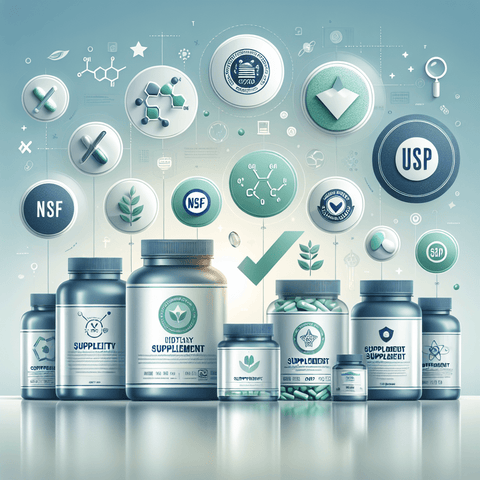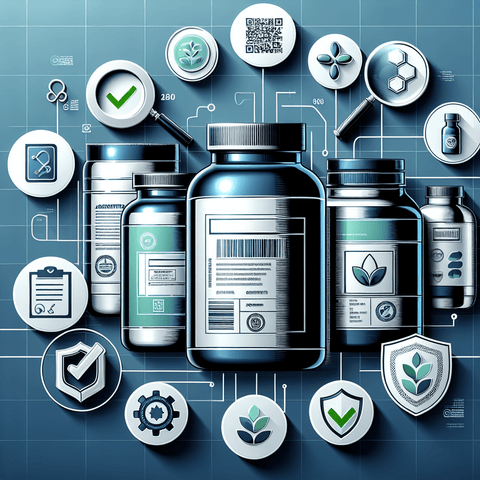Vitamin Absorption: How to Make Sure Your Body Actually Gets the Nutrients
Vitamin absorption is crucial for keeping your body healthy. It's the process where your body takes in vitamins from the food or supplements you consume and uses them effectively. Without proper vitamin absorption, even the best supplements might not give you the benefits you expect.
Understanding Vitamin Absorption
Vitamin absorption refers to how your digestive system breaks down and takes in vitamins. Once consumed, vitamins travel through your gut and pass into your bloodstream for use by your cells. However, not all vitamins absorb the same way. There are two main types: water soluble and fat soluble.
Water soluble vitamins, like vitamin C and the B-complex group, dissolve in water. They are absorbed directly into the bloodstream from the intestines. Since these vitamins are not stored in large amounts, your body needs a steady daily intake.
Fat soluble vitamins, such as vitamins A, D, E, and K, need fats to be absorbed properly. They are stored in your body’s fatty tissues and liver, so they do not need daily replenishing like water soluble vitamins.
Bioavailability of Supplements
Bioavailability is a term that refers to how much of a nutrient your body actually absorbs and uses after ingestion. Just because a supplement contains a high amount of a vitamin doesn’t mean your body will absorb it all.
Factors like supplement form, digestive health, and interactions with other foods affect bioavailability. For example, some vitamin minerals are better absorbed in chelated forms, where they are bound to amino acids.
Understanding bioavailability helps you choose supplements that deliver real results rather than just filling capsules.
Factors Affecting Vitamin Absorption
Several factors influence how well your body absorbs vitamins. Diet plays a key role. Eating nutrient-rich foods along with your supplements can improve absorption. For example, vitamin C enhances iron absorption when eaten together.
Fiber can sometimes hinder absorption if consumed in large amounts since it binds to certain minerals and vitamins, reducing their uptake. Certain health conditions like celiac disease, Crohn’s disease, or stomach surgeries can also impair your body's ability to absorb nutrients.
Medications are another important factor. Some medicines, especially those that affect stomach acid like proton pump inhibitors, can lower vitamin absorption. Others may interfere with how vitamins are processed. Always consult with your doctor if you take medications and are concerned about vitamin absorption.
Water Soluble Vitamins Absorption
Water soluble vitamins include vitamin C and the B-complex group like B6, B12, and folate. They do not require fat to be absorbed and are absorbed directly into your blood.
To improve absorption of water soluble vitamins, consume them with meals to boost digestion. Splitting doses throughout the day helps maintain steady blood levels since these vitamins are excreted quickly when taken in large amounts.
Avoid drinking excessive coffee or tea close to supplement time as tannins can reduce absorption.
Fat Soluble Vitamins Absorption
Fat soluble vitamins A, D, E, and K need dietary fat to be absorbed properly. Consuming these vitamins with meals that contain healthy fats helps your body take in these vitamins.
Fat soluble vitamins are stored in the body, so taking very high doses regularly might lead to buildup and toxicity. Follow dosing instructions, especially for supplements.
Including sources like olive oil, nuts, or avocado when taking fat soluble vitamins enhances their absorption.
How to Maximize Vitamin Absorption
Timing and food pairing matter when taking vitamins. For example, taking fat soluble vitamins with a fatty meal increases absorption, while water soluble vitamins absorb well with or without food.
Avoid taking calcium with iron supplements together as they can interfere with each other’s absorption. Additionally, limit intake of substances like caffeine and alcohol around supplement time.
If you have digestive issues, consider supplements with enhanced bioavailability designed for better absorption.
Choosing Quality Supplements for Better Absorption
Choosing certified, natural supplements ensures better nutrient delivery. Products labeled organic and allergen free often have fewer fillers and additives, making absorption easier for your body.
At Topvitamine, we offer 100% natural supplements from trusted international brands. Our products are certified for quality, which means you get vitamins and minerals that your body can absorb effectively.
Opting for organic vitamins reduces exposure to harmful chemicals and supports overall health alongside proper vitamin absorption.
Conclusion
Vitamin absorption is vital for making the most of your supplements. Understanding the difference between water soluble and fat soluble vitamins, knowing factors that affect absorption, and choosing quality products can significantly improve your nutritional health.
Remember to take supplements with the right foods, avoid absorption inhibitors, and consult your healthcare provider about any medications you use.
Explore Topvitamine’s natural supplement options to find certified organic, allergen-free vitamins that support your body’s needs efficiently. Your health deserves nothing less than well-absorbed nutrients.



